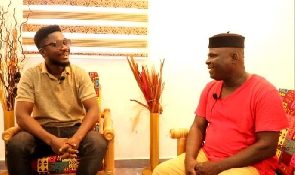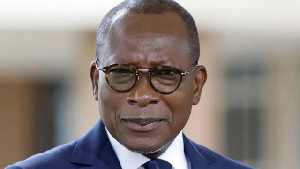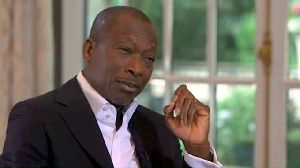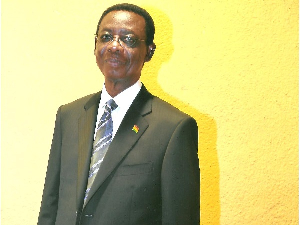Highlife Legend Samuel Owusu has raised concerns about the declining interest of the youth in our beloved HighLife music.
In an interview with Agoo FM’s Ebenezer Kojo Nyavor (K-Lover), he expressed his disappointment over the current state of highlife music and emphasized the need to address the situation amicably.
According to Samuel Owusu, the genre that defines our culture and identity has been left behind, with the younger generation showing disinterest and moving away from it.
He questioned the reasons behind this shift and stressed the importance of rectifying the situation.
During the interview, the HighLife Legend highlighted the significance of following proper procedures and putting measures in place, just as the greats of the past like Nana Ampadu, Jewel Ackah, Kwabena Akwaboah, K Gyasi, and others did.
He reminisced about how music used to be a more thoughtful process, with lyrics that attracted listeners and earned musicians the respect they deserved.
Reflecting on his own experience, Samuel Owusu highlighted how he wrote his first song, “Abusua Kyiri Ka,” at the age of 25. Despite his young age, the lyrical content showcased maturity, leading people to mistake him for an elderly person. He attributed this to following the proper procedure and understanding that music is not about rushing but about crafting words that resonate with the audience.
Samuel Owusu expressed his belief that the decline of HighLife began when the younger generation lacked proper guidance and mentorship.
He acknowledged that there were underlying issues but refrained from specifying them, suggesting that the responsibility lies with the authorities and offices entrusted with regulating the music industry and preserving our cultural heritage.
He also drew a comparison to the Kente cloth industry, stating that despite foreign competition, the producers of Bonwire Kente continued producing authentic product.
Similarly, he urged the youth to embrace highlife music and not shy away from it, just as the Bonwire Kente producers did not give up despite the competition.
Expressing disappointment, Samuel Owusu mentioned a BBC documentary that attributed the origin of Highlife to Nigeria, which caused him concern about the lack of recognition for the genre’s Ghanaian roots.
Furthermore, he expressed dismay at the media’s role in the decline of highlife music, with some DJs and presenters not playing it on their platforms. He called upon the media to play a key role in reviving the Highlife spirit by promoting and playing more highlife songs.
Samuel Owusu’s heartfelt plea is for the authorities, the media, and the younger generation to join hands in preserving and reviving the essence of HighLife music, which is an integral part of Ghanaian culture and identity.
Entertainment of Thursday, 20 July 2023
Source: kasapafmonline.com













